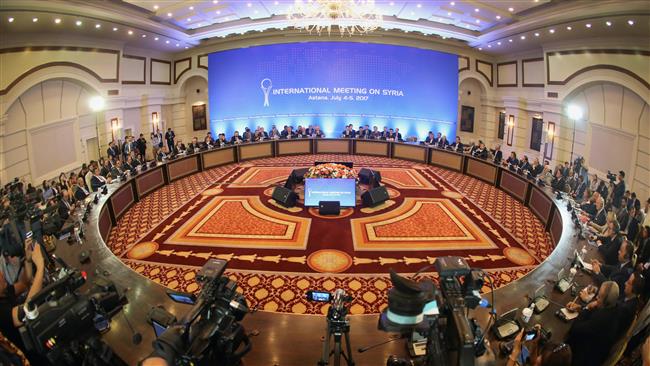
RNA - Representatives from the Syrian government and opposition began arriving for the talks at the United Nations (UN)’s headquarters in the city on Monday.
The talks in Geneva have been held under the auspices of the UN, which has appointed a special envoy for the Syrian conflict. But a parallel series of talks has also been organized and held by Iran, Russia, and Turkey in Kazakhstan’s capital Astana.
Iran and Russia are Syrian government allies, while Turkey is a supporter of anti-Damascus groups.
The last round of the Astana talks was held last week, and the sides agreed to meet at the high level in Astana again in late August. Working groups would meet in Iran for preparations in early August.
The three countries agreed in May to set up four “de-escalation zones” in Syria and have since been negotiating to work out the details.
The last round of the UN-brokered talks in Geneva was held in May, and those talks have made relatively less progress compared to the Astana talks.
Syria has been beset by conflict since March 2011. Numerous rounds of talks and three different UN special envoys have failed to resolve the crisis.
Meanwhile, the United States, Russia, and Jordan have agreed to enforce a small-scale ceasefire in southwestern Syria. It reportedly took effect on Sunday.
“We hope that an agreement will be reached for the other areas that have been discussed as soon as possible and this will lead to significant support for the political process,” said Ramzi Ezzedine Ramzi, a deputy for Staffan de Mistura, the current UN special envoy for Syria.
On Monday, Bahram Qassemi, who is the spokesman for the Iranian Foreign Ministry, said a ceasefire had to be enforced for the entire Syria.
847/940